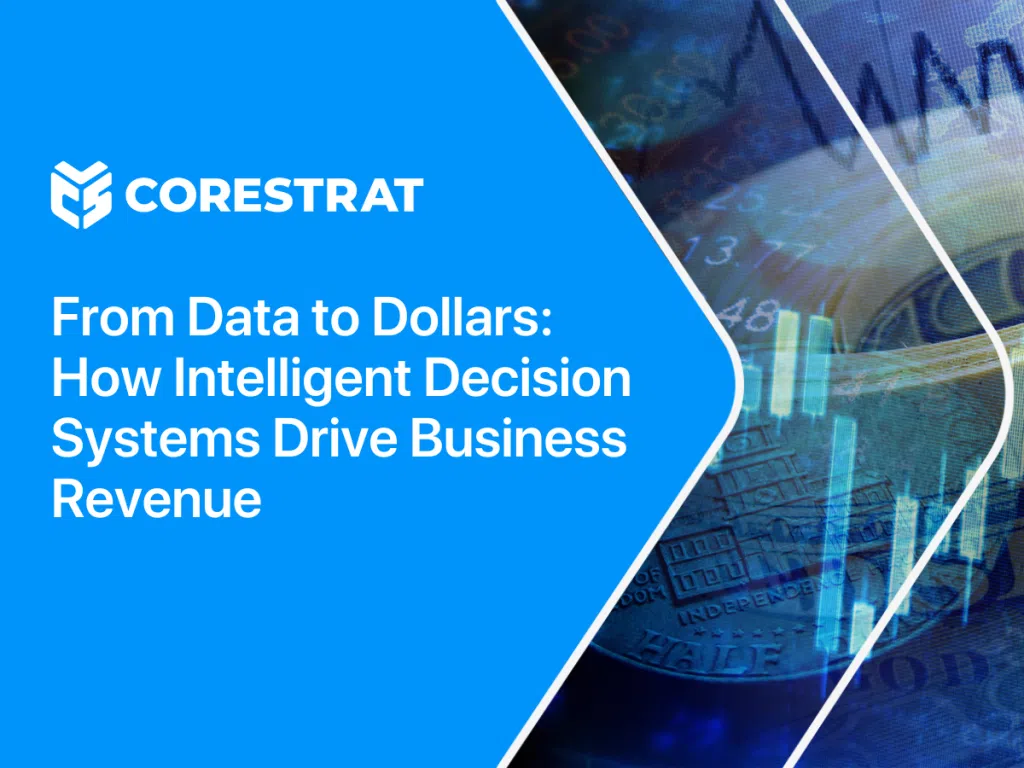In today’s digital age, the sheer volume of data businesses generate is staggering. However, raw data alone doesn’t equate to revenue. It’s what organisations do with that data that determines their competitive edge. This is where intelligent decision systems come into play. By leveraging advanced technologies like artificial intelligence (AI), machine learning (ML), and predictive analytics, intelligent decision systems transform businesses’ decision-making processes, turning data into actionable insights and, ultimately, dollars.
The Power of Intelligent Decision Systems
Intelligent decision systems are designed to analyse vast amounts of data in real time, uncover patterns, and provide actionable recommendations in various sectors including marketing, healthcare, insurance and financial services.From facilitating targeted lending to managing personal finance, intelligent decision systems play a significant role in financial services making it one of the trusted tools to improve user experience and enhance business revenue. Unlike traditional analytics tools, intelligent decision systems don’t just tell you what happened or why it happened; they predict what is likely to happen next and prescribe what actions to take.
Let’s break this down further:
- Data Integration: An intelligent decision system aggregates data from various sources—customer interactions, market trends, internal processes, and any other alternative data sources —to provide a unified view.
- Real-time Insights: The system processes data continuously, enabling businesses to respond instantly to changing conditions.
- Actionable Recommendations: Beyond analysis, an intelligent decision system suggests specific actions that align with business goals.
- Learning Capability: These systems improve over time, refining their predictions and recommendations as they process more data.
How Intelligent Decision Systems Drive Revenue Growth
By optimising decision-making, intelligent decision systems directly impact a company’s bottom line. Here’s how:
1. Optimised Operations
Efficiency is revenue’s best friend. Intelligent decision systems help organisations streamline operations by:
- Demand Forecasting: Predicting market trends and customer demand to optimise inventory and resource allocation.
- Dynamic Pricing: Adjusting prices in real-time based on demand, competitor pricing, and customer behaviour.
- Fraud Detection: Identifying anomalies and preventing fraudulent activities, saving businesses millions annually.
2. Accelerated Product Development
In a competitive market, time-to-market can make or break a product. Intelligent decision system speeds up the innovation cycle by:
- Trend Analysis: Identifying emerging customer needs and market gaps.
- Simulation Models: Predicting the success of new products before launch. For example, many organisations use digital twins—virtual replicas of physical products—to simulate real-world performance, reducing R&D costs and timelines.
3. Empowered Sales and Marketing Teams
Sales and marketing are data-intensive functions, and intelligent decision systems give teams an edge by:
- Lead Scoring: Prioritising high-value leads based on predictive algorithms, ensuring sales efforts are focused on the most promising opportunities.
- Campaign Optimisation: Analysing campaign performance in real time to refine targeting and messaging. Netflix, for instance, uses an intelligent decision system to curate content recommendations and personalise marketing emails, driving subscriber engagement and retention.
- Cross-selling and Upselling: Identifying opportunities for additional sales based on customer profiles and purchase patterns.
4. Enhanced Customer Experience
Customer expectations have never been higher. They demand personalised experiences, quick resolutions, and seamless interactions. An intelligent decision system enables businesses to enhance customer experiences by:
- Personalisation at Scale: Analysing customer preferences, purchase history, and behaviours to deliver tailored recommendations. For example, Amazon’s recommendation engine—powered by AI—accounts for 35% of the company’s sales.
- Proactive Service: Predicting customer needs before they arise. Think of chatbots that anticipate and address queries based on past interactions.
- Reduced Churn: Identifying at-risk customers and offering targeted retention strategies.
Conclusion: Transforming Potential into Profit
The journey from data to dollars is no longer a futuristic ideal; it’s a present-day reality. Intelligent decision systems are empowering businesses to make smarter, faster, and more informed decisions, translating data into tangible revenue streams.
However, success requires more than just adopting the technology. It demands a culture of data-driven decision-making, investment in high-quality data, and a commitment to ethical practices. Businesses that get this equation right will not only thrive in today’s competitive landscape but will also set the stage for long-term growth and innovation.
Corestrat’s ID.ai is one such intelligent decision system that empowers organisations to analyse vast amounts of data and gain valuable insights to drive profitability. The system’s ability to predict outcomes for specific conditions and recommend optimal strategies enables businesses to make data-backed decisions confidently. Whether it’s identifying high-value customers, streamlining processes, or enhancing risk management, ID.ai serves as a critical tool in converting potential into performance.
 Skip to content
Skip to content



